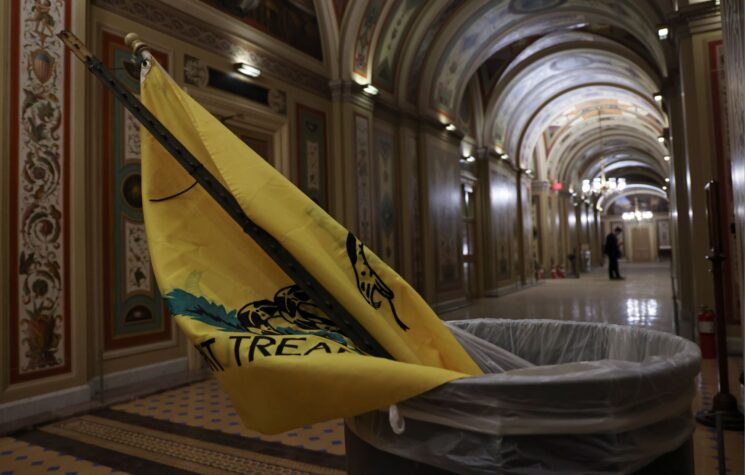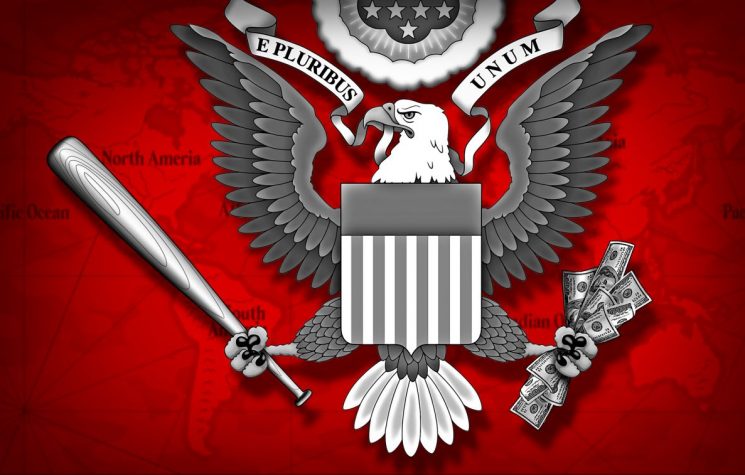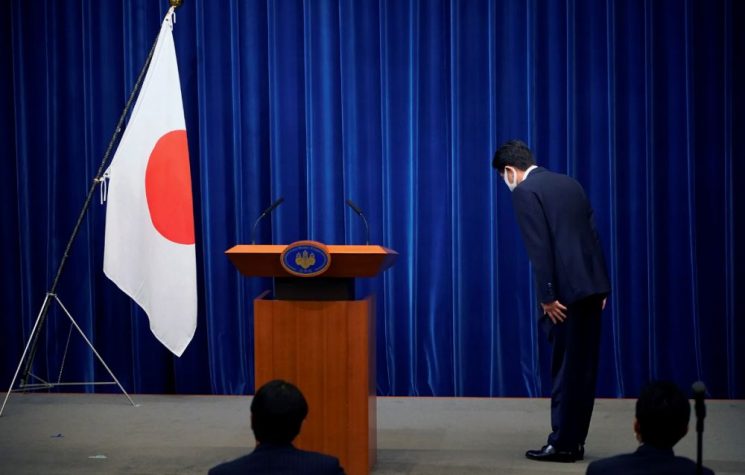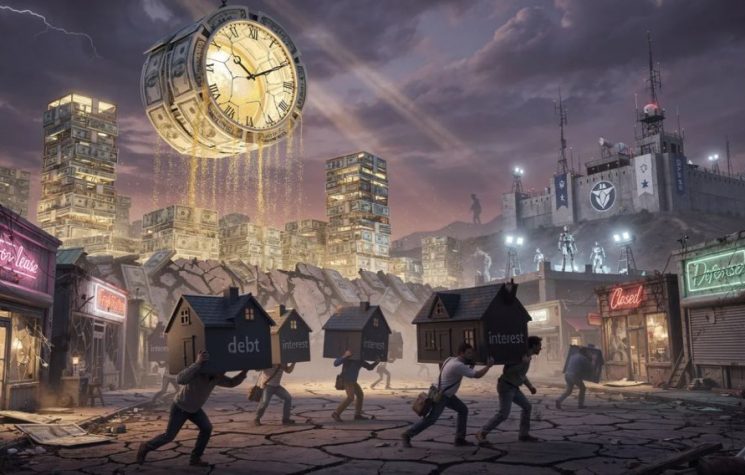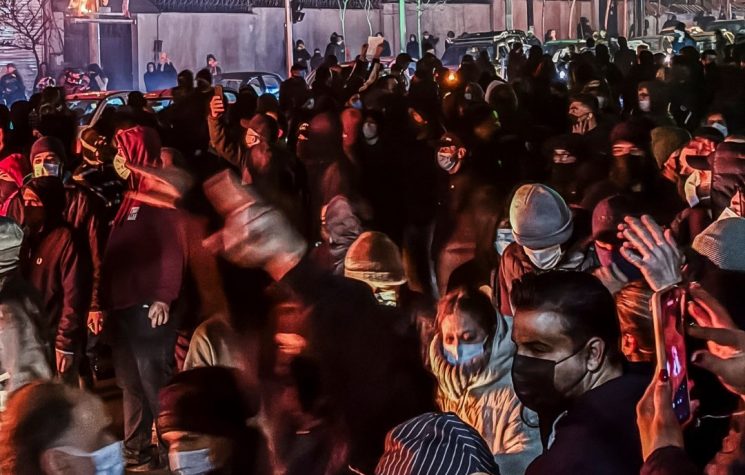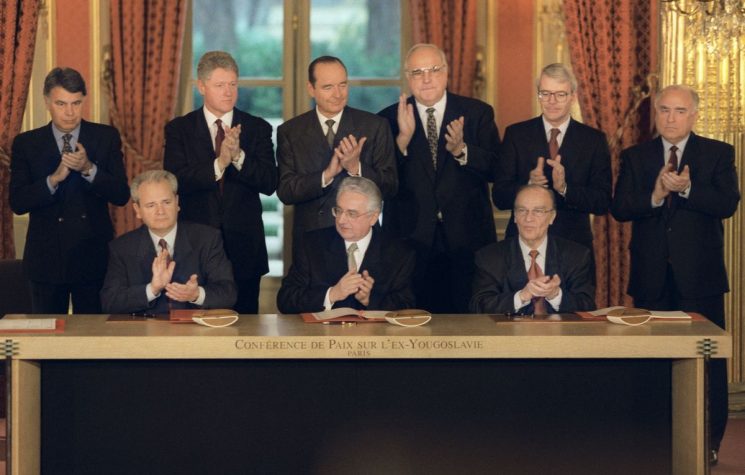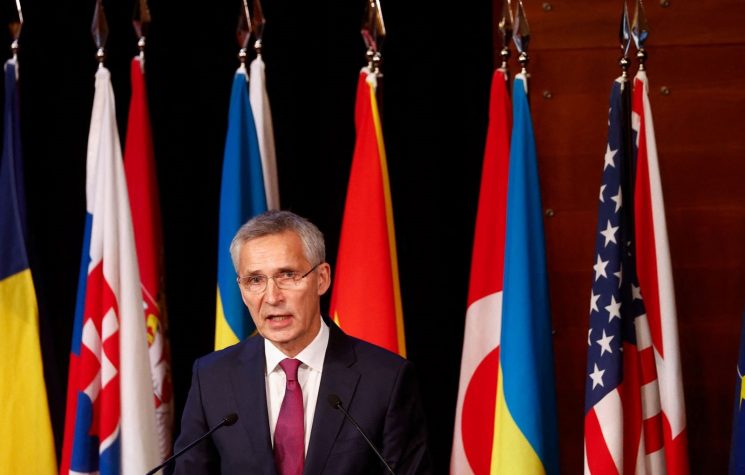The first and most overpowering impression upon seeing a great state suddenly plunged into agony and disarray is sheer disbelief at “how the mighty have fallen”.
Elitist mind-moulder Edward Bernays’ generous concession to the common man, “People are entitled to the choices we give them,” was played out dramatically during America’s recent electoral season. The multitude gobbled up the meagre choices, and did so voraciously. The distinction between theatre and reality was plainly lost on most of them. They became impassioned actors in a self-destructive play minutely choreographed by forces unseen, for ends suspected by some but completely understood by none.
Students of the controlled demolitions of the USSR and Yugoslavia may also see the ultimate game plan “through a glass, darkly” (1 Cor. 13:12), much like everyone else, but they will at least enjoy a significant heads-up. The rumblings of impending disintegration that even in the initial stages were audible to keen minds back then, are again unmistakably perceptible today.
The first and most overpowering impression upon seeing a great state suddenly plunged into agony and disarray is sheer disbelief at “how the mighty have fallen” (see 2 Samuel 1:19 or 1:27, as the reader may prefer, for both are spot on). The magnitude of the disaster overwhelms both literally and metaphorically. In the latter sense it is particularly striking. A formerly dynamic and agile commonwealth, as in a fiendish practical joke, now in its doddering phase is being put in the charge of an embarrassing senile dotard whose decrepit condition exactly matches the demise of the once imposing entity that he is being installed to nominally govern.
But to shift from broad generalities to banal particulars, it is doubtful that after these outrages America will still be able to represent itself to the outside world as the lofty paragon of the Biblical “city on the hill.” Far more importantly, however, the internal consensus that has held it together as “one nation, under God” (to use another biblical allusion) is now irredeemably broken. The indoctrinated nation that over two centuries was meekly contented, in Bernays’ terms, to settle for the choices it was given, has now fully realized the systemic scandal of that cynical arrangement, and it no longer feels comfortable with it. Still not all, but certainly a good half, and then some. Their overwhelming electoral preference for the “losing” Presidential candidate, regardless of the ruinous economic and health situation of unparalleled severity, is a telling sign. Since, as all pundits know, Americans always “vote their pocketbook,” even if the incompetent incumbent’s opponent happens to be an impaired dotard, such electoral behaviour is a game changer that the Bernays-inspired ruling elite disregard at their peril. In the short-term, after January 20th, the complete gutting of the Second Amendment will undoubtedly be their emergency reflex response; but whether that will be sufficient to restore obedience remains to be seen.
But more fundamentally, beyond mere discontent, and in spite of the greatest coordinated news blackout ever seen, the unhappy masses, some intuitively and some empirically, through the still unrepressed alternative sources, have now grasped the shocking magnitude of the fraud played on them. One of the basic props of the engineered consent upon which public order and social stability have rested for decades, the naïve belief in the democratic essence of the system, was foolishly overturned on November 3rd, and it was done precisely by those who should have been the most interested in keeping it intact. The schism that shattered faith will engender is bound to have incalculable consequences.
But the sacrilegious mob incursion into the hallowed precincts of the Congress definitely was not one of those consequences, the carefully contrived appearances notwithstanding. It was a classical false flag operation, an American adaptation of the standard color revolution playbook that previously had been successfully applied elsewhere in numerous regime change situations. The incessantly battered and largely demoralized regime, headed by a political illiterate whose grasp and cunning do not go far beyond routine prevarications required for New York real estate deals, apparently was thoroughly infiltrated as well, exactly like its third world homologues. Violent Antifa shock troops, now the elite’s Brown Shirts, were bussed into Washington in white vans, under police escort. Capitol Hill guards facilitated the storming of the Congress by removing barricades and letting the mob through. Nor did the choreographers forget to make sure that there would also be the obligatory sacrificial victim. From an operational standpoint, Gene Sharp would have been pleased, though it is unlikely that in his day the domestic application of his technology had actually been envisaged.
The expectation of millions of Americans of all political persuasions and from all walks of life that after repeated court challenges, rejected on flimsy procedural grounds, on January 6th Congress would at last exercise its constitutional authority to order a thorough review of the disputed issues on their merits, came to nought. The officer of the government who had the legal authority to act, Vice President Mike Pence, pointedly failed to do so. Pence practically mirrored the behaviour in 1992 of Yugoslav Presidency member Bogić Bogićević. At a critical moment leading up to the break-up of Yugoslavia, Bogićević refused to vote for proposed solutions that might have defused the crisis, thus ensuring that the measures would not be adopted and laying the groundwork for the country’s ensuing collapse and bloodshed.
The curious fact that in the end establishment figures of both parties and from all major institutions of formal and informal governance were aligned on the same page, certifying a totally implausible electoral outcome, is perhaps the ultimate proof of attorney Lin Wood’s otherwise shocking explanation of how the system works.
Personalizing the issues underlying this crisis, as many outside the United States are wont to do, is mistaken. Both principals are strawmen devoid of substance. In his whimsical quest for the Presidency four years ago, engaged in as a rich man’s ego trip rather than with a serious intention of winning, probably accidentally the incumbent articulated the brooding masses’ deepest concerns and frustrations. They, in turn, projected their exasperation, bitterness, and illusions back onto him, turning him by default into their standard-bearer. The fact that after four years in office their symbolic champion has nothing to show, yet in the midst of economic collapse he was still able to garner about eighty million votes, is a huge sign. It is a sobering warning to the ruling elite that blatant electoral manipulation and ruthless information censorship may serve as Band-Aid solutions, but are losing their effectiveness.
You can pull the tiger’s tail only so much before it pounces.








